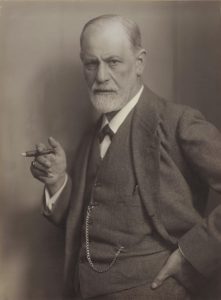1) What are the most common mental health issues affecting men, and do you have statistics for the percentage of Singaporean men who are affected by these issues?
Common mental health issues for men include Depression, Generalised Anxiety Disorders (GAD), Obsessive Compulsive Disorders (OCD) and Alcohol Use Disorder.
Overall about one in 16 men will experience at least one of this condition in his lifetime.
The lifetime prevalence of depression in men is 4.3%.
The lifetime prevalence of GAD is 1.6%.
That of OCD is 3.6%.
That of alcohol use disorder is 4.1%.
2) What causes these mental health issues?
The actual causes are not known but these mental health issues are related to genetics, childhood trauma, environmental stress, negative personality resulting in negative outlooks, and use of substances and alcohol. These factors can result in aberrations in the neurotransmitters in our brain resulting in mental illnesses.
3) What are some signs and symptoms of these issues?
Depression is characterised by i) depressed mood nearly every day, ii) loss of interest or pleasure in most activities, iii) significant weight loss or weight gain, iv) poor sleep or over sleeping, v) agitation / irritability / restlessness or feeling slowed down vi) feeling tired easily or loss of energy vii) feeling worthless or having excessive guilt, viii) poor concentration, difficulty thinking or forgetfulness and ix) suicidal thoughts, plans or attempts.
GAD is characterised by i) constantly worrying or obsessing about small or large concerns ii) feeling restless, keyed up or on the edge iii)fatigue and easily getting tired iv) difficulty concentrating or mind “going blank” v) irritability and feeling frustrated vi) Muscle tension or muscle aches and vii) trouble sleeping.
OCD is characterized by obsessive thoughts and compulsive behaviours. Obsessive thoughts are experienced by the individual as intrusive and distressing. Common obsessive thoughts include i) fear of contamination by germs or dirt, ii) intrusive thoughts about symmetry and orderliness and iii) obsessive thoughts of checking things.
As a result of the obsessive thoughts, the individual feels that he has to perform a certain act (compulsive behaviours) to undo the obsessions. These include excessive washing and cleaning and/or checking and counting. The compulsions are often performed in a ritualistic manner over a “magical” number of times.
Alcohol use disorders are unhealthy patterns of use of alcohol resulting in harm including binge drinking and addiction to alcohol.
4) Why do so many men avoid seeking professional help for their mental health issues? What is the stigma surrounding this?
Our society expects a man to be strong and to deal with his own problems himself. As a result, Singaporean men often put up a brave front in the face of adversities. This means that men are less likely to acknowledge their emotional problems and will not seek help if they have psychological difficulties as they are afraid that they may be seen as weak.
Many worry that their employers will come to know that they suffer from psychological illnesses and their careers will be affected. And as men are often expected to be the main breadwinner, they are even more afraid of jeopardizing their job.
5) How can such mental health issues affect men if they’re left untreated or undiagnosed?
Often family members would tell the patient suffering from mental illness to just “get out of it” or to “will it away”.
However, psychiatric illnesses are genuine medical illnesses. One cannot simply will it away and will require help and treatment. If left untreated, mental illness can cause problems in relationships and at work.
When unwell, men can be irritable leading to quarrels with spouse, partner and children. Work can be compromised when they have no motivation. poor concentration or are fixated on the difficulties arising from the symptoms.
To relieve their symptoms, men may turn to alcohol, drugs, pornography and gambling.
Most significantly, we know that men are less likely to express or talk about their symptoms but are very much more likely than women to complete suicide.
6) How can men preserve and protect their mental health on a daily basis? Can you talk about good health habits like stress management, a healthy diet, sleep, exercise, opening up to others, etc?
Start with simple practices like keeping to a good routine. Make sure you have adequate rest, sleep enough, have time for meals and toilet breaks.
Either have long easy walks daily, or more intense exercising three times a week for at least 30 mins if physically permitting.
Once you have the basic routines, ensure you look into me time, hobbies and spending time with your spouse.
These and managing your amount of work and hence work stress will help with stress management.
Particularly important for men, be mindful of alcohol use and not be seduced by substance use to numb yourself.
Don’t be afraid of showing your emotions and in fact crying can be cathartic. Also, don’t be afraid to talk to your loved ones about your difficulties, be it stress with work or your symptoms.
7) Many men feel lonely and isolated – how can they overcome these, especially if they are unmarried, have no close family nearby or live alone?
Being isolated increases the risk of mental illnesses and even suicide.
Even if you are unmarried and have no close family nearby, maintain good friendships and engage with the community. You can participate in volunteering, join an interest group or play group sports regularly.
With social media and video conferencing, you can also keep close to your family via technology.
Having a pet like a dog has been shown to be protective for isolated individuals.
Life can still be fulfilling without anyone with you if you engage in meaningful activities and hobbies.


